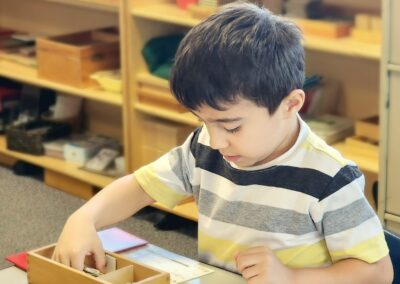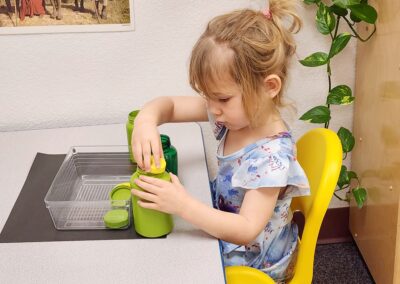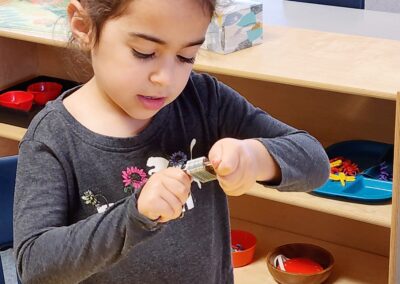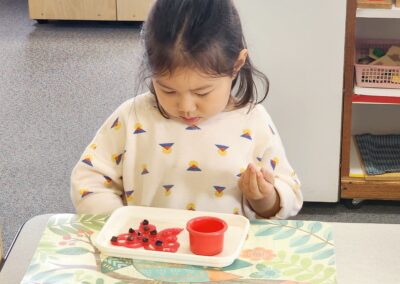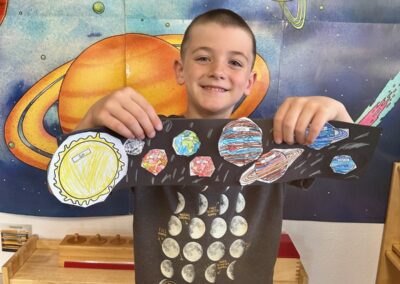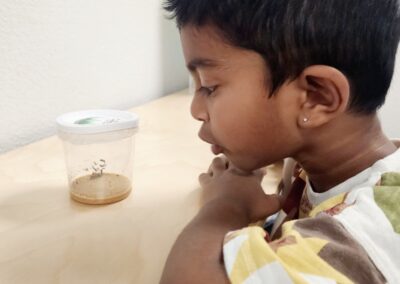FREQUENTLY ASKED QUESTIONS
Frequently asked questions about Montessori education and AFMWhat is Montessori education?
Montessori education is both a philosophy of child growth and a rationale for guiding such growth. It is based on the child’s developmental needs for freedom within limits and a carefully prepared environment, which guarantees exposure to materials and experiences through which to develop intelligence as well as physical and psychological abilities. Montessori education is designed to take full advantage of the self-motivation and unique ability of children to develop their own capabilities. The child needs adults to expose him to the possibilities of his life, but the child, himself, must direct his response to those possibilities. Premises of Montessori education are:
- Children are to be respected as different from adults, and as individuals who differ from each other
- The child possesses unusual sensitivity and mental powers for absorbing and learning from his environment that are unlike those of the adult both in quality and capacity
- The most important years of growth are the first six years of life when unconscious learning is gradually brought to the conscious level
- The child has a deep love and need for purposeful work; working not as an adult for profit and completion of a job, but for the sake of the activity itself
- It is this activity which helps the child accomplish the most important goal: the development of the self – their mental, physical, and psychological powers
Is Montessori education a good fit for all children?
The Montessori system has been used successfully with children from infancy to eighteen years, from all socioeconomic levels, representing those in regular classes as well as gifted children. Because of its individual approach, Montessori education is uniquely suited to children of many backgrounds.
Are children allowed to do whatever they want?
The children are free to move about the classroom at will, to work with any equipment whose purpose they understand, or to ask the teacher to introduce new material. They are not free to disturb other children at work or to abuse the equipment that is so important to their development.
What is the role of the Directress in the classroom?
The directress works with individual children, introduces materials, and gives guidance where needed. One of her primary tasks is careful observation of each child in order to determine his needs and to gain the knowledge she needs in preparing the environment to aid his growth. Her method of teaching is indirect in that she neither imposes upon the child as in direct teaching nor abandons him as a non-directive, permissive approach. Rather, she is constantly alert to the direction in which the child is going and she actively seeks ways to help him accomplish his goals.
What are the benefits of a Montessori education?
The goals of Montessori for children are several: It encourages self-discipline, self-knowledge, and independence as well as enthusiasm for learning an organized approach to problem-solving and academic skills.

